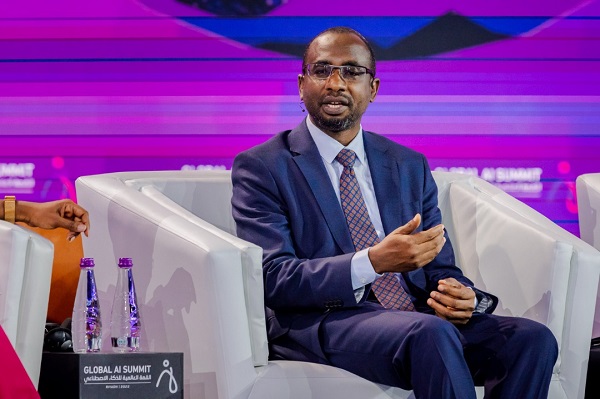
The Federal Government has pointed out that financial technology (FinTech) is critical to the advancement of digital economies globally through its enormous contribution to the gross domestic product (GDP), as well as the alleviation of poverty.
The director-general of the National Information Technology Development Agency (NITDA), Mallam Kashifu Abdullahi, made this assertion during the 2nd Africa Cashless Payment Systems Conference themed “Building Cashless Africa” in Abuja recently.
He underscored the need for continuous advocacy of fintech for the sustainability of Nigeria’s digital economy.
Represented by Dr. Ayo Bakare of the agency’s digital economy department (DED), Abdullahi described fintech as an important sector that needs to be passionately embraced. He called it one of the sectors where the impact of digital technology is felt in Africa.
Giving accolades to the Foreign Investment Network (FIN) and its partners for organising the event, Abdullahi averred that the conference which brings professionals from the financial, technology, judiciary and government sectors together would ensure that information technology is adequately integrated into every sector, particularly the financial sector.
“The collaboration through this conference allows fintech companies, vendors of financial solutions, consumers, government, and academia to meet and deliberate on how Africa can develop and promote safe, secure and seamless digital financial transactions across the continent with minimal disruptions”, he stated.
The DG expressed his confidence that digital financial solutions, cyber security, e-commerce and digital retail banking amongst many others would as the topics of discourse during the event give new insights into strengthening the country’s cashless economy.
Abdullahi stated that reducing the availability of cash in circulation would exterminate all forms of financial crimes in the country. He highlighted one of the advantages of a cashless economy as the availability of information on all flows of income, revenue and expenditure.
“Negative social vices such as theft, corruption, illegal transactions, money laundering, financial crime and the like are reduced as the availability of cash in circulation reduces. The authentication of all transactions in a cashless payment system has brought transparency and built trust in the ecosystem,” he mentioned.
He asserted that a cashless payment system in Africa will further promote the actualisation of the Sustainable Development Goals (SDGs) of eliminating poverty, empowering women and ensuring citizens have access to credit services.
“Africa’s revenue from fintech alone hit between $4.5bn and $6bn in 2022 and Bloomberg reports that fintech in Nigeria accounted for $439m in 2021. It is projected to increase by 23.69 pr cent in 2022. Furthermore, many fintech unicorns have emerged in Africa and six of them are from Nigeria.”
He added that Africa’s huge unbanked population is a major concern that requires urgent intervention and urged the government and fintech companies to intensify efforts in absorbing them into the trending bandwagon of financial independence and growth.
While reiterating the agency’s support to the fintech industry through their developmental regulations with a focus on cyber security, data strategy, data protection, cloud computing and emerging technologies, Abdullahi expressed faith that a cashless economy would bring development to Africa and the world.
“It is important for this gathering to note that cash is still a major dominator in African transactions. However, I have a strong conviction that fintech can eradicate cash dominance in Africa. Having a secured cashless system will enhance faster and more effective African trade within the region and globally,” he stated.


